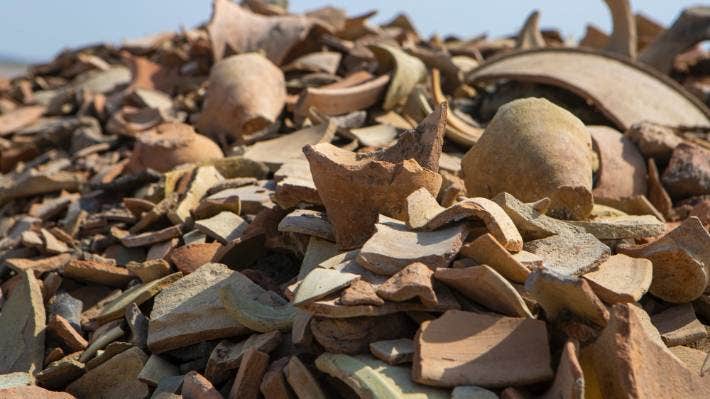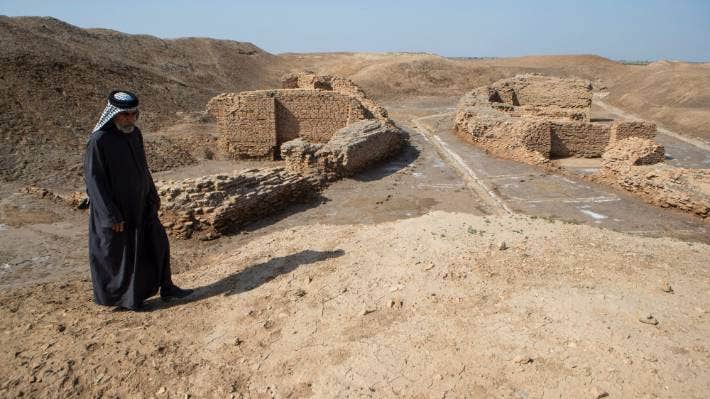An international archaeological mission has uncovered the remains of what is believed to be a 5,000 year old dining hall or tavern in the ancient city of Lagash in southern Iraq.
The discovery of the ancient dining hall, found with a primitive cooling system, hundreds of crudely made clay bowls and the fossilized remains of an overcooked fish, was announced by a team led by the University of Pennsylvania.
Iraq, often referred to as the “cradle of civilization”, is a country where archaeological discoveries have been hampered by years of conflict after the US invasion in 2003. Unfortunately, these events have exposed the country’s rich sites, collections and tens of thousands of artifacts to danger and many have been looted. “The effects of looting in the field of archaeology were very severe, unfortunately the wars and periods of instability greatly affected the situation across the country,” says Laith Majid Hussein, head of the Iraqi State Board of Antiquities and Heritage.
With the return of relative calm in the last few years, excavations have resumed. At the same time, thousands of stolen archaeological artifacts have been repatriated. It is good news for all of us that Iraq, despite all the obstacles, is still unearthing history from its soil and that archaeology is trying to revive.
Iraq is home to several ancient empires under rulers such as Hammurabi and Nebuchadnezzar, as well as the ancient city of Babylon and six UNESCO listed World Heritage Sites.
Excavations at Lagash, which first began in 1968, closed after 1990 and the site remained empty until 2019, Stuff reported.
Iraqi archaeologist Zaid Alrawi, a project manager at the site, said earlier excavations had uncovered a temple complex and the remains of institutional buildings. So when archaeologists returned in 2019, they focused on areas that would give clues to the lives of ordinary people, starting with an area thought to be a pottery workshop with several kilns.



Then, in the area surrounding the workshop, a dining hall with a fireplace used for cooking was found. There were also seating areas and a cooling system made of layers of clay jars.
The site is believed to date back to around 2700 BC. Given that beer drinking was common among the ancient Sumerians living in Lagash at the time, many have called it a kind of ancient “gastropub”.
But Alrawi believes a cafeteria to feed workers at the pottery workshop next door is more likely. “I think it was a place that served everyone who worked in the big pottery factory next door, right next to where people work hard and the workers have to eat lunch,” he said.
Alrawi, whose father was also an archaeologist, grew up visiting sites all over the country. Today, he said, he is happy to see artifacts returning to Iraq and excavations resuming.
Iraq has pressed for the repatriation of stolen artifacts from countries as close as Lebanon to as far away as the United States.
For the first time in recent history, Iraq’s national museum opened its doors to the public for free on Fridays. Families wandered through the corridors lined with Assyrian tablets and looked closely at the repatriated artifacts. Among the 17,000 artifacts returned to Iraq from the United States was a small clay tablet containing part of the 3,500 year old Epic of Gilgamesh.
One of the museum’s visitors, history teacher Ebtisam Khalaf, expressed his happiness: “This is a good initiative because in the past we could only look at these beautiful old artifacts in books, but now we can actually see them.”
